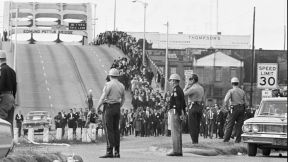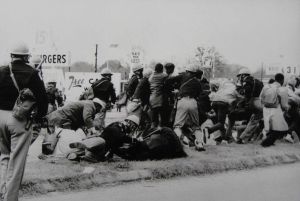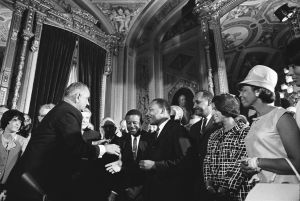Voting has come a long way since the first time the Constitution granted voting rights to white men. The expansion of voting rights was something that people wanted because they wanted to get a say in who got to lead their state or country.
In 1870, the states passed the 15th Amendment that states, “The right to citizens of the United States to vote shall not be denied or abridged by the United States or by any State on account of race, color, or previous condition of servitude.”
It then took 50 years for them to pass the 19th Amendment that states, “The right of citizens of the United States to vote shall not be denied or abridged by the United States or by any State on account of sex.”
Each of these amendments helped grant voting rights to citizens, no matter their race or gender. However, the amendments didn’t stop some states from making it difficult for minorities to vote and cause a racial divide to remain.

It was hard for minorities to vote. In some places like Louisiana, minorities were denied the right to vote if they had children out of wedlock. States required literacy tests and tax polls to stop African Americans and other minorities from voting in Southern states. This caused people to fight for voting rights because people believed every United States citizen had the right to elect someone they thought would help them and had the same beliefs.
In 1964, three civil rights workers were murdered by the Ku Klux Klan, KKK, in Mississippi while helping Black voters to register. This showed how far some people would go to stop Blacks from having their right to vote. After the incident, many protests demanded the right to vote for Black people.

On March 7, 1965, 600 marches were attacked by officers in Selma, Alabama, now known as “Bloody Sunday.” This ignited a fire in people and made them want to march for their right to vote. People would march at the Edmund Pettus Bridge, where the attack took place, to show that they would not give up. Once footage of the attack on March 7 surfaced, it shocked the nation and President Lyndon B. Johnson.
On March 21, 1965, Martin Luther King Jr. and around 3,200 people marched out of Selma to Montgomery, Alabama. Once they reached the capital, it had been five days, and the crowd had grown to about 25,000 people.
August 6, 2020, marked 55 years since President Lyndon B. Johnson signed the Voting Rights Act in 1965. The Voting Right Act provides nationwide protection on voting rights. The act stopped states from using the literacy test to see if people could vote or not. The act helped African Americans exercise their 15th amendment right, which guaranteed their right to vote, no matter their race.

Even with this memorable anniversary, registration for voting has declined since 2012 and has worsened with the pandemic. However, groups like Black Voters Matter and When We All Vote help ensuring that people are registering to vote.
“The anniversary of the Voting Rights Act reminds us that even though we are grappling with the coronavirus pandemic, police brutality and racial injustice, we are reminded of the sacrifices of people like John Lewis and his peers, and encouraged to stay in the fight to help every eligible voter get registered and ready to vote,” Stephanie Young, When We All Vote chief officer of culture, communications and media partnerships said.


